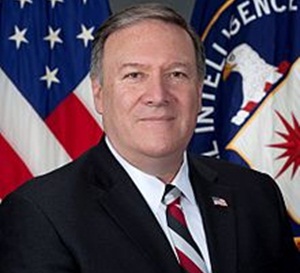US secretary of state Mike Pompeo will land in New Delhi today for talks aimed at pushing India further on opening up market for e-commerce, trade and investment - issues that have cast a shadow over ties between the two countries in recent times.

The United States and India, however, are closing in on an industrial security agreement that will allow the transfer of defence technology, sources said on Monday, ahead of Pompeo’s visit aimed at promoting strategic ties with India.
Disputes over trade and protectionist moves have soured relations between the two countries in recent months, but defence ties remain strong with Washington seeking to build Indian capabilities as a counterweight to China.
And, despite growing protectionism, the Trump administration has managed to sell weapons in the name of technology transfer and at the same time stall India’s oil and defence deals with Iran and Russia.
The US has managed to sell weapons worth more than $15 billion to India over the past decade as it seeks to replace its Russian-origin military gear and is in talks for sale of helicopters, armed drones as also local production of combat planes together worth billions of dollars.
For this, the US has sought guarantees from India on protection of classified information and technology. A draft agreement called Industrial Security Annex will now be placed before the Indian cabinet for approval in the next few weeks, say reports.
Under an agreement signed in 2016, the two countries can access each other’s military bases while another pact signed last year ensures secure military communication between the two. A third accord on sharing geospatial information is also in the works, say reports citing official sources.
Pompeo’s visit comes ahead of a planned meeting between US President Donald Trump and Indian Prime Minister Narendra Modi later this week at a G20 meeting in Japan.
The problem with India and the US is that both countries are trying to promote domestic manufacturing – while Modi is pushing his “Make in India” campaign, courting foreign and local investors, Trump wants US manufacturing to return home as part of his “Make America Great Again” campaign.
The two countries also have differences over Russian arms sales to India and US sanctions on China’s Huawei Technologies Co Ltd.
Meanwhile, India this month imposed higher tariffs on 28 US products, including almonds, apples and walnuts, following the US withdrawal of certain trade privileges for India.
Last year, India announced tariffs in retaliation to higher US import duties on steel and aluminium.
Trump has often cited 50 per cent import duties that India imposes on Harley Davidson motorbikes. The Trump administration also wants India to remove price caps on imported US medical devices, open up its dairy market and cut duties on IT products.
The United States is also opposed to India’s mandate for local storing of consumer data by foreign card companies. India has specifically asked foreign firms to store their payments data locally, which companies like Mastercard and Visa are opposing.
The United States last week announced a 15 per cent cap on H-1B work visas that allow thousands of skilled Indians to work in the US, in retaliation for India’s data localisation drive. While the state department has denied any plans to curb work visas, the Trump administration has posed such a possibility to deter India.
Also, India has tightened its e-commerce policy in order to ensure data localisation, improve privacy safeguards and to combat the sale of counterfeit products. This has been opposed by companies like Amazon.com Inc and Walmart Inc as the new rules hurt their plans to flout Indian rules for retail business through e-commerce.
Walmart last year invested $16 billion in Indian online retailer Flipkart while Amazon has acquired stakes in Indian brick and mortar retailers.
The United States also wants India to block access for Huawei to US products, after it placed the Chinese company on an export blacklist citing national security issues. US suppliers have been barred from selling to the world’s largest telecommunications equipment maker and second-biggest maker of smartphones, without special approval.
The US has said that India’s plan to buy S-400 surface-to-air missile systems from Russia would draw sanctions under its Countering America’s Adversaries Through Sanctions law.



















